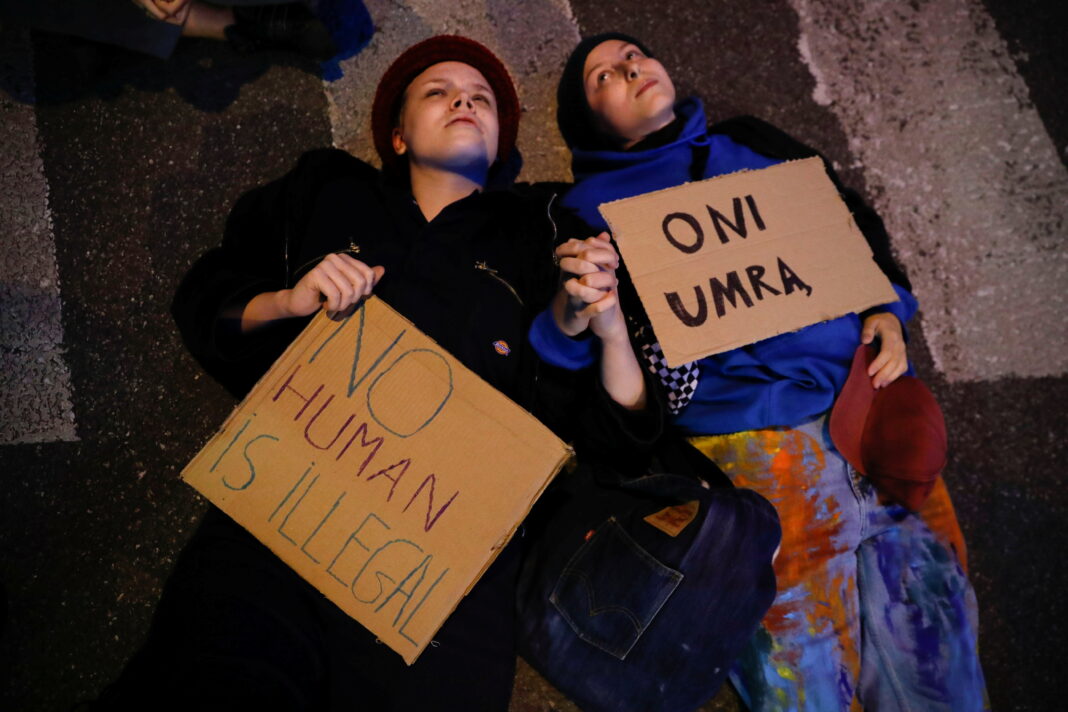Belarus has recently been accused by the EU of using migration flows as a tool of political pressure. Poland and the Baltics are now responding by repatriating migrants and building up walls
Tensions between Belarus and the EU first arose in 2015, when President Alexander Lukashenko, in office since 1994, was once again re-elected to lead the country. However, it was with the presidential elections of August 2020 that the relations between the two worsened considerably: his sixth reappointment led to a wave of protests with tens of thousands of demonstrators taking to the streets of the country for several months.
The result of the elections was not recognised by the European Union, which sanctioned Belarus for “violence, repression and electoral fraud”.
The repression perpetrated by Lukashenko’s regime was so harsh that several Belarusian dissidents were forced to seek asylum abroad, especially in Poland and the Baltics. This was the case of the opposition candidate Sviatlana Tsikhanouskaya, who chose to flee to Lithuania for fear of repercussions on her and her children.
On 23 May 2021, opposition activist and journalist Roman Protasevich and his partner Sofia Sapega were travelling on Ryanair flight FR4978 from Athens to Vilnius with some other 124 passengers. Upon entering Belarusian airspace, under the pretence of a bomb threat, the plane was forced to land at Minsk airport by the Belarusian government, where Protasevich and Sapega were arrested by local authorities.
The episode was severely condemned by NATO, the United States and the United Kingdom, but above all by the European Union, which, alongside the European Union Aviation Safety Agency, decided to ban Belarusian carriers from its airspace and airports. In addition, further sanctions were imposed on Belarus.
Migration crisis and political crisis
As relations between Belarus and the EU increasingly deteriorated, a migration crisis began, with a large influx of migrants from the Middle East and Africa, mainly Iraq and Afghanistan, heading towards Lithuania, Latvia and Poland.
Lithuania claimed that illegal migration was not only allowed, but even facilitated by Belarusian president Lukashenko, who was now “weaponizing migration” in response to the sanctions imposed by the EU.
Following the accusations, on 28 June 2021, Belarus unilaterally withdrew from the EU Eastern Partnership Initiative.
Since the beginning of 2021 alone, more than 4.000 migrants have illegally entered Lithuania. Unprepared for the massive migratory flow into its territory (only 74 entries were recorded in 2020), on 7 July 2021 Lithuania was forced to declare a state of emergency. Estonia offered help to its neighbouring country by sending its border patrols to provide support.
The migration crisis has also affected Poland: in August alone, more than 2.100 migrants illegally crossed its border with Belarus. Border guards do not allow migrants to cross, but Belarus does not allow them to turn back.
Poland considers this massive wave of migrants to be a retaliation by Lukashenko for having offered asylum to Belarusian athlete Krystsina Tsimanouskaya, who refused to board a flight home after the Tokyo Olympics and sought protection in the EU. Several Belarusian dissidents already live in Poland.
Polish Prime Minister Mateusz Morawiecki affirmed: “This is an attempt [by Belarus] to create a huge pan-European migration crisis”.
Poland, Lithuania, and Latvia – the latter having equally declared a state of emergency from 11 August to 10 November 2021 – released a joint statement condemning the hybrid warfare of sending migrants beyond the borders.
To date, the two most affected countries, Lithuania and Poland, are determined to increase their defences to cope with the current overwhelming influx of migrants. On August 5, Lithuania proposed to build a barrier along the border with Belarus. Poland, for its part, has built 150km of wire fence along its border with Belarus, deployed 900 soldiers of the Polish Armed Forces to secure it and now intends to build a 2.5m-high wall to separate its territory from Belarus.
On September 2, Poland declared a state of emergency in the areas bordering with Belarus. This is an unprecedented event, as Poland has never declared a state of emergency since the end of communist rule. Until now, the clash between Belarus and the European Union has only ever been at the expense of migrants, who remain stuck in the limbo of a political crisis that still shows no sign of abating.




